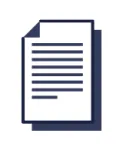| Titre : | Safe asleep ? Human-machine relations in medical practice. (2005) |
| Auteurs : | Maggie MORT ; Dawn GOODWIN ; Catherine POPE ; Andrew-F Smith ; Lancaster University. Alexandra Square. Lancaster. GBR |
| Type de document : | Article |
| Dans : | Social science and medicine (vol. 61, n° 9, 2005) |
| Pagination : | 2027-2037 |
| Langues: | Anglais |
| Mots-clés : | Homme ; Aide décision ; Royaume Uni ; Europe ; Europe sociale ; Anesthésie ; Médecin spécialiste ; Expertise ; Pratique médicale |
| Résumé : | [BDSP. Notice produite par INIST-CNRS 3AyR0x3W. Diffusion soumise à autorisation]. In the process of anaesthesia the patient must surrender vital functions to the care of clinicians and machines who will act for, and advocate for the patient during the surgical procedure. In this paper, we discuss the practices and knowledge sources that underpin safety in a risky field in which many boundaries are crossed and dissolved. Anaesthetic practice is at the frontier not only of conscious/unconsciousness but is also at the human/machine frontier, where a range of technologies acts as both delegates and intermediaries between patient and practitioner. We are concerned with how practitioners accommodate and manage these shifting boundaries and what kinds of knowledge sources the'expert'must employ to make decisions. Such sources include clinical, social and electronic which in their various forms demonstrate the hybrid and collective nature of anaesthetised patients. In managing this collective, the expert is one who is able to judge where the boundary lies between what is routine and what is critical in practice, while the junior must judge the personal limits of expertise in practice. In exploring the working of anaesthetic hybrids, we argue that recognising the changing distribution of agency between humans and machines itself illustrates important features of human authorship and expertise. |
Service Documentation EHESP
Me connecter
PORTAIL DOCUMENTAIRE
École des hautes études en santé publique
Catalogue
Multi-bases
Adresse
Service Documentation EHESPBibliothèque Rennes Avenue du Professeur Léon Bernard – CS 74312 – 35043 Rennes Cedex Bibliothèque MSSH Paris 20 avenue George Sand - 93210 La Plaine Saint-Denis
France
Bibliothèque Rennes : 02 99 02 29 50 Bibliothèque MSSH Paris : 02 99 02 24 50
contact


